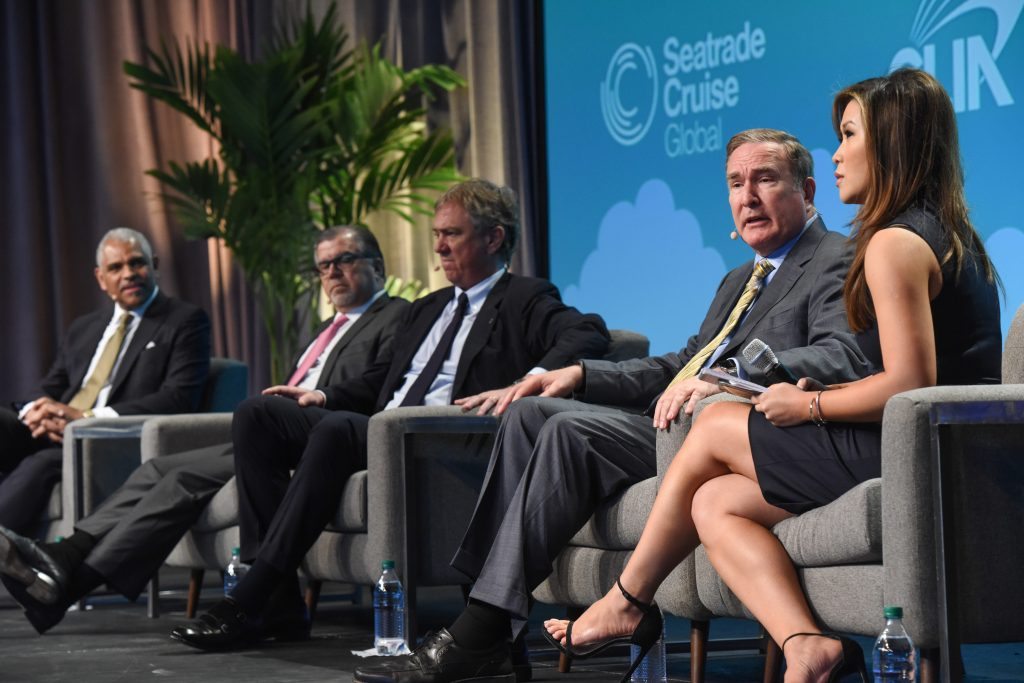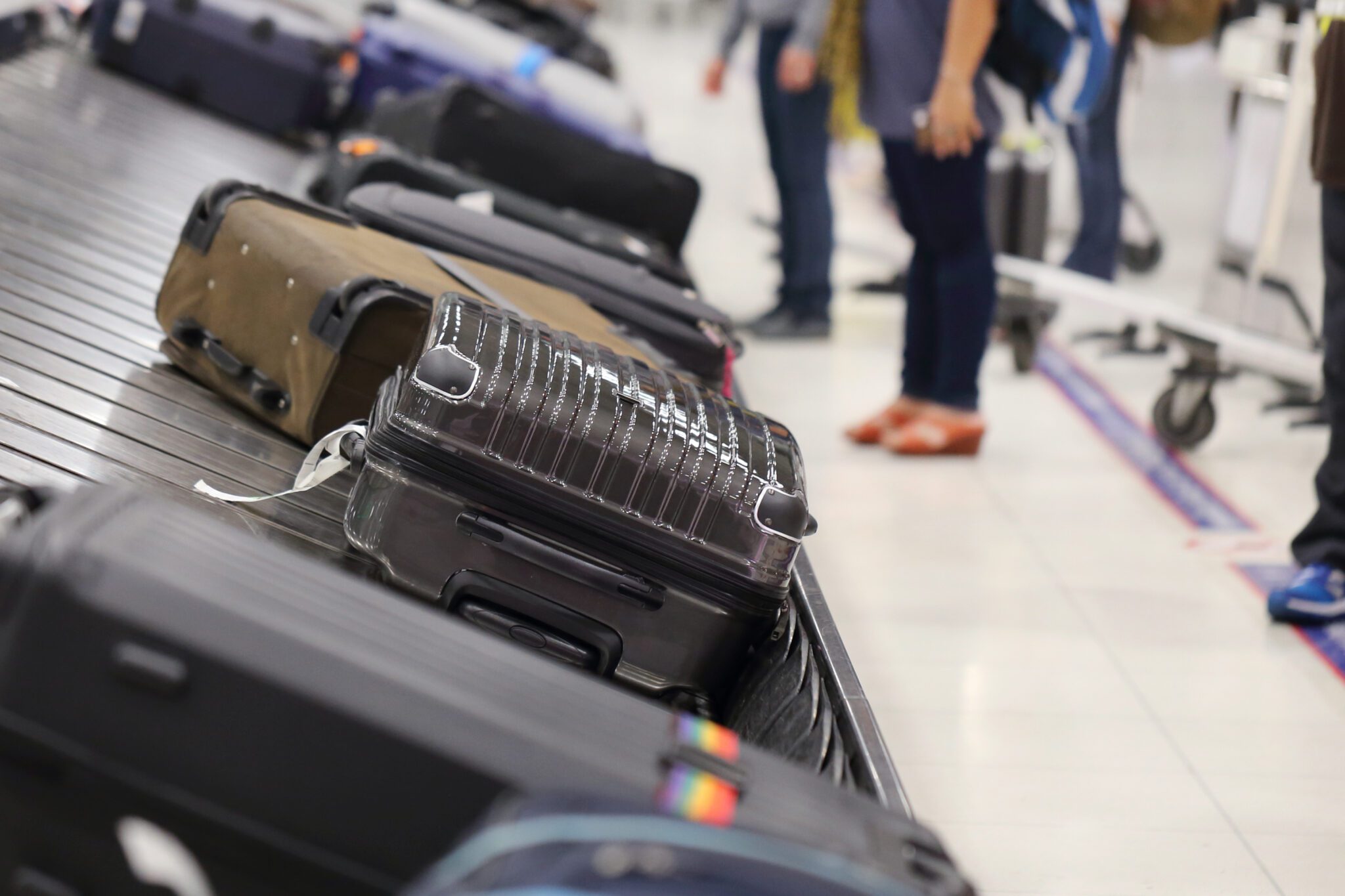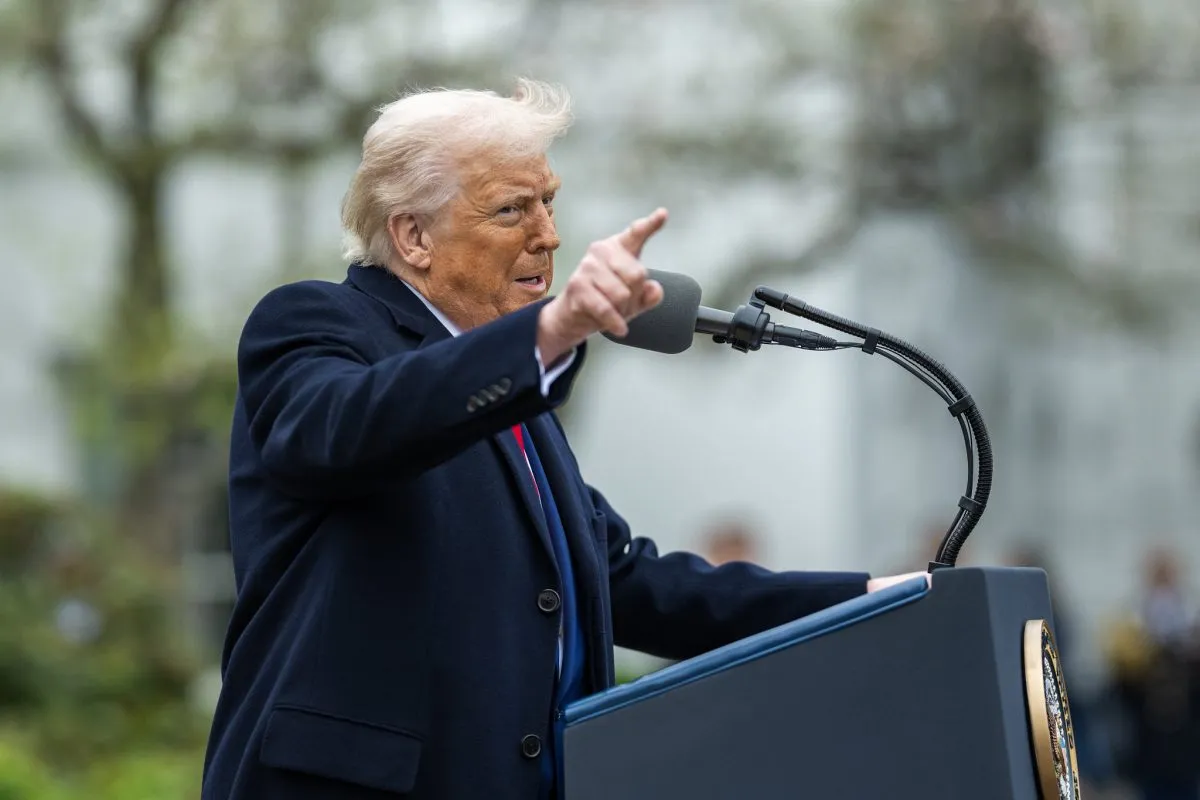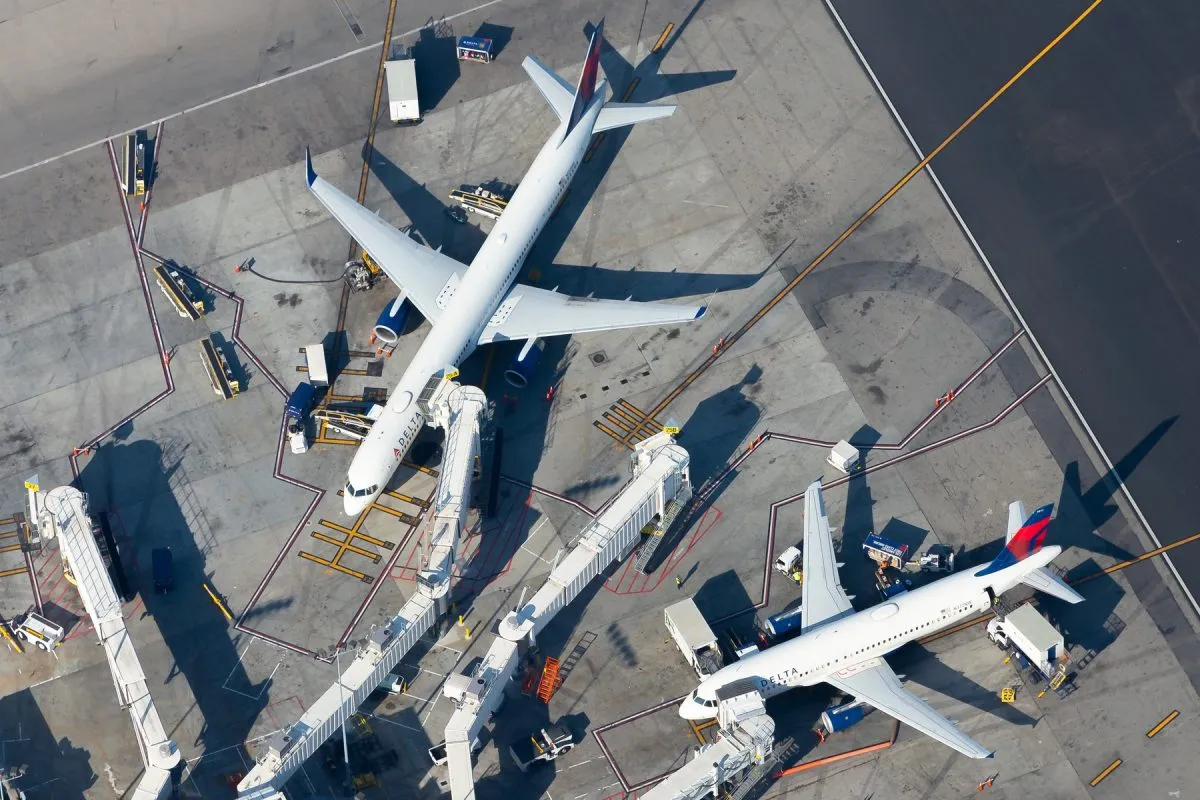Cruise Executives at Odds Over the Trump Effect

Skift Take
The leaders of the world’s largest cruise operators painted a bright picture for the industry Tuesday, despite the challenges of a strong U.S. dollar, slowing Chinese economic growth, and safety concerns keeping some regions off limits.
“I'm sleeping pretty well these days,” said Richard Fain, chairman and CEO of Royal Caribbean Cruises, in response to a question about what was keeping him up at night. He and executives from Carnival Corp., Norwegian Cruise Line Holdings, and MSC Cruises spoke at the opening event for the Seatrade Cruise Global conference in Fort Lauderdale Tuesday.
After a few years of difficulty, Fain said he feels like the cruise industry has made a breakthrough.
“All of a sudden, I think the understanding of what cruise is offering seems to have taken hold,” he said. “We’re seeing it in the United States because of consumer confidence and the economy doing well. We’re seeing it doing very well in Europe. And Asia is just exploding.”
Frank Del Rio, president and CEO of Norwegian Cruise Line Holdings, attributed positive business trends in part to the new president.
“Customers are happy,” he said. “We’ve had the Trump effect, the stock market is at an all-time high.”
“The Trump effect!” said moderator Susan Li, a CNBC reporter. “Tell me more.”
Del Rio said that talk about infrastructure investment, fewer regulations, and tax cuts for consumers and corporations are all good for his business.
“Everyone is going to benefit if it’s true that these kind of government initiatives come to fruition,” Del Rio said. “I agree that we have to wait and see.”
But just the conversation, he said, is having an impact so far.
“I think that puts a bounce in everybody’s step,” Del Rio said.
Carnival's Investments Paying Off
Arnold Donald, president and CEO of Carnival Corp., was more reserved. He said the company sees more of a correlation between cruise demand and investment in the product as opposed to the state of the economy. And he said it was too early to tell how any changes in tax policy would affect business.
"We just have to wait and see what the specifics are here," he said.
Executives agreed that they hoped for policy changes when it comes to Cuba and the U.S. embargo.
“Let’s hope he revisits it in a positive way,” Del Rio said. “I’m all for lifting the embargo.”
“It has infrastructural issues today; it can be a major force in the cruise business for years to come,” he said. “I hope the administration sees that potential….and therefore would hesitate to roll back any of the Obama-era initiatives.”
Fain, whose company has added Cuba to sailings for two of its cruise lines, said cruising has been a major part of the conversation about the destination because ships bring their own infrastructure.
“I find it interesting that the cruise industry is so much in the center of the discussion as well — the advantage the industry has,” he said. “Nobody’s talking about ‘Oh, this is great for the hotel industry, this is great for the airline industry.’ But cruising offers an opportunity to visit ports of call, places that otherwise it would be a little more difficult to visit.”
'Moveable Assets'
Pierfrancesco Vago, executive chairman of MSC Cruises, said the industry follows the trends in customer demand and will continue to do so.
"We'e always been saying that our assets are moveable assets," he said. "The world is the oyster."
But some once-popular destinations, especially those in the Eastern Mediterranean, have been pulled off itineraries in the past year because of violence and political instability.
Del Rio said his biggest concern is about geopolitical events that he can't control.
"They've come to bite us in the past," he said. "Every morning I wake up and hope that there's no headline news."
Del Rio said destinations including Tunisia, Libya, Turkey, and Odessa have all been "cruelly taken from us, at least temporarily" because of violence or political upheaval.
"It's my true hope that someday soon our industry will be able to return to these historic ports of call for our loyal guests to enjoy," he said.
Donald cautioned about the impact of rising nationalism in countries around the world. And he said global tensions are still a threat, specifically naming the restrictions that China recently imposed on travel to South Korea.
“The only thing that really stops our industry is people’s inability to travel.” he said. “As long as the world stays open to travel, we’re going to do fine. If the world just shifts to a place of closed borders and you can’t travel, then we have a problem.”




